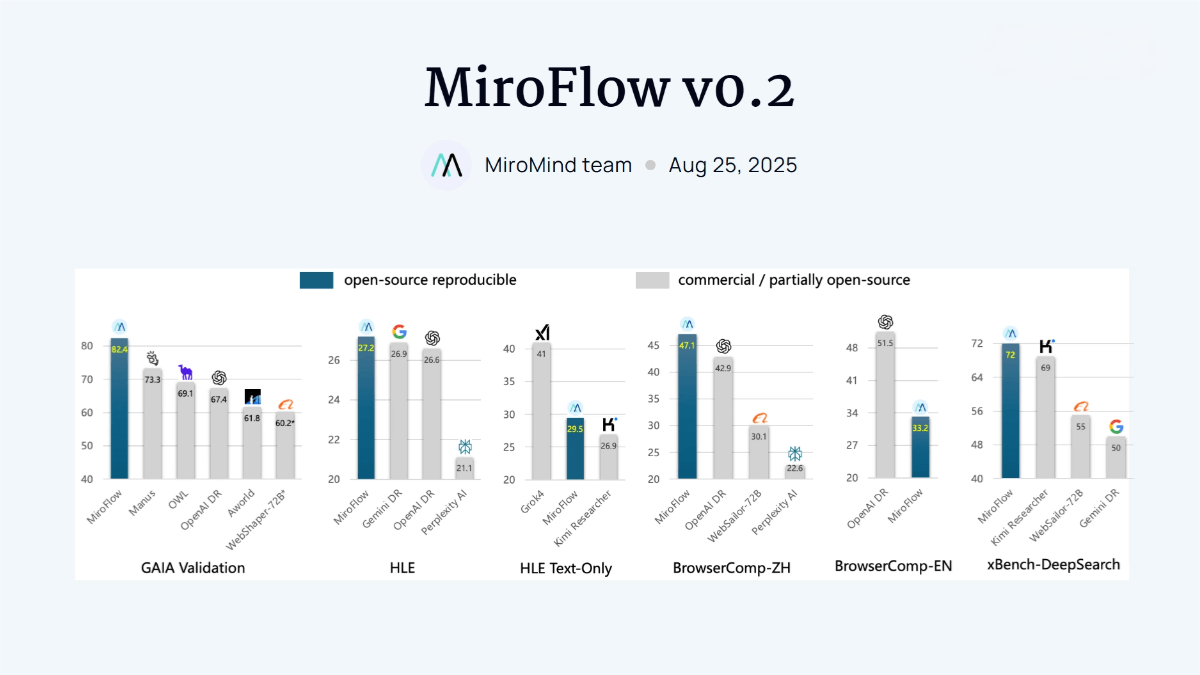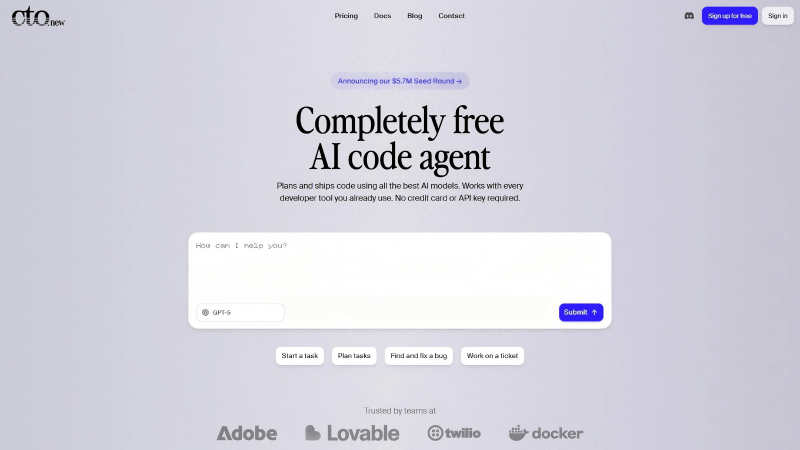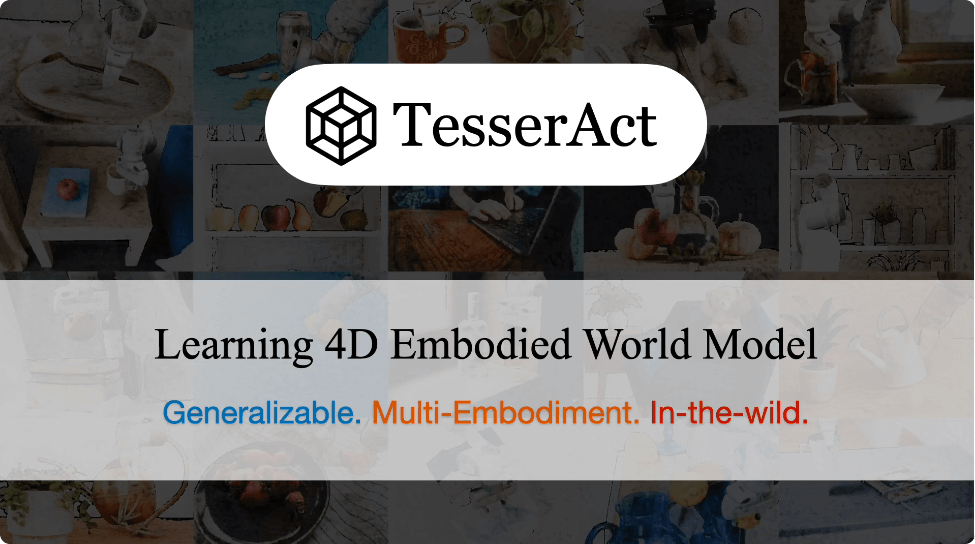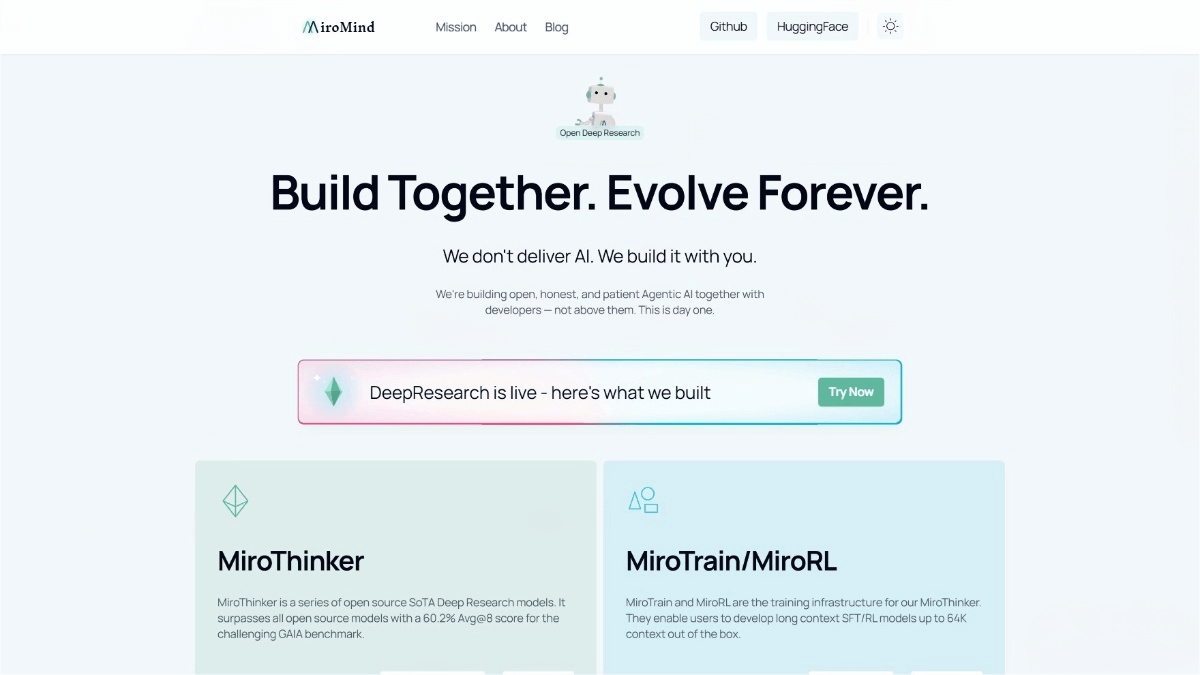MiroFlow v0.2 – MiroMind’s Open-Source Research Agent Framework
What is MiroFlow v0.2?
MiroFlow v0.2 is an open-source research agent framework developed by MiroMind. It can upgrade any large language model (LLM) to a research capability level comparable to OpenAI’s advanced research tools, with a focus on reliably handling complex tool-using tasks. The framework offers advantages such as open-source reproducibility, high concurrency and reliability, and low deployment costs. It has achieved state-of-the-art results in multiple benchmarks, including GAIA, HLE, xBench-DeepSearch, and BrowserComp.
Built on a simple Gradio front-end interface and a powerful back-end for multi-tool collaboration, MiroFlow v0.2 efficiently processes user queries through stages such as query augmentation, task planning, sub-agent delegation, tool invocation, and result synthesis, providing strong support for AI research and applications.

MiroFlow v0.2 – Key Features
-
Task Planning & Execution: Automatically plans and executes complex tasks by coordinating multiple tools and sub-agents.
-
Multi-Tool Collaboration: Supports collaboration across diverse tools (e.g., web browsers, Python utilities) to carry out multi-step online research and resource analysis.
-
High Concurrency & Reliability: Features robust concurrency management and fault-tolerant design, enabling efficient handling of rate-limited APIs and unstable network environments.
-
Cost Efficiency: Can run on a single RTX 4090 GPU, built on free and open-source tools, making it easy to deploy and scale.
-
Open-Source Reproducibility: All performance metrics can be reproduced with publicly available code, ensuring transparency and verifiability of research outcomes.
Technical Principles of MiroFlow v0.2
-
Query Augmentation: Uses large language models to analyze user input, clarify intent, and enrich query details for more accurate understanding of requirements.
-
Task Planning: The main agent creates a detailed execution plan based on the enhanced query, coordinating the entire workflow.
-
Sub-Agent Delegation: For complex or domain-specific tasks, the main agent delegates work to sub-agents with relevant expertise, which can autonomously plan and execute tasks.
-
Tool Invocation: Agents connect to an MCP (Model Context Protocol) server to access and utilize external tools.
-
Result Synthesis: Upon task completion, the system integrates results from multiple sources to ensure high-quality output that meets user needs.
Project Resources
-
Official Website: https://miromind.ai/blog/miroflow
-
HuggingFace Model Hub: https://huggingface.co/collections/miromind-ai/mirothinker-v02-68af084a18035f57b17cd902
Application Scenarios of MiroFlow v0.2
-
Academic Research: Helps researchers quickly collect and analyze large volumes of academic resources, automatically generating literature reviews or research proposals, greatly improving research efficiency.
-
Market Analysis: Conducts multi-step web research and tool collaboration to rapidly analyze market trends and competitor information, providing data-driven support for business decisions.
-
News Reporting: Automatically gathers and organizes multi-perspective information about news events, assisting journalists in quickly building report outlines and improving timeliness.
-
Educational Tutoring: Searches and organizes educational resources based on student queries, delivering detailed explanations and learning suggestions to support teaching activities.
-
Technical Development: Assists developers in rapidly collecting technical documentation, code samples, and other resources, helping users better understand and apply new technologies to boost development efficiency.
Related Posts




